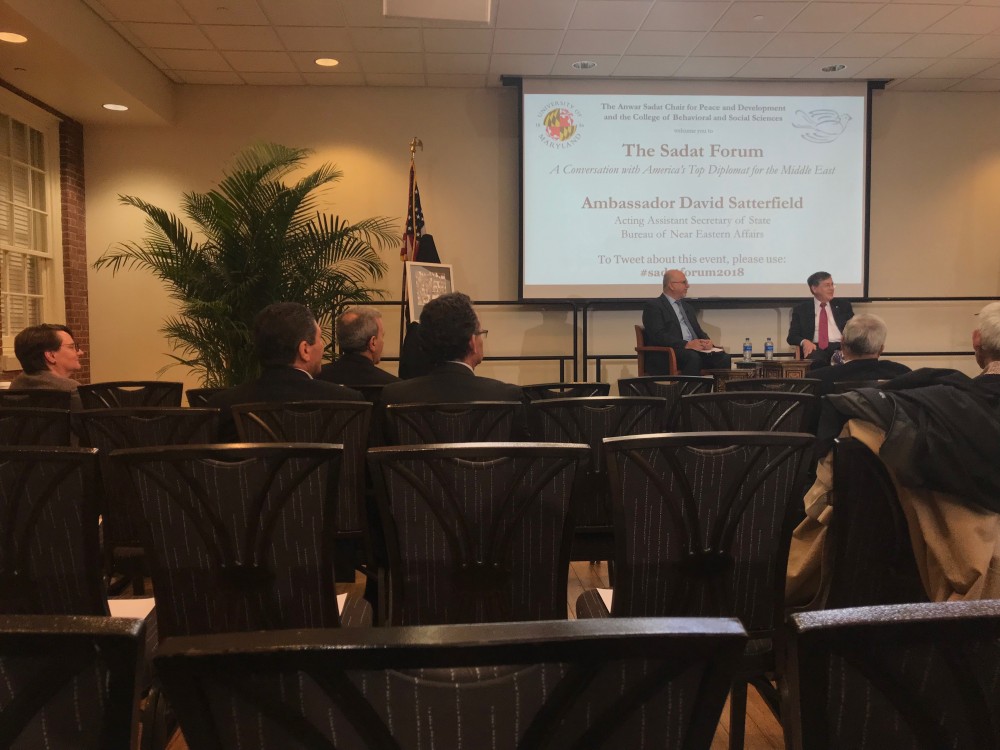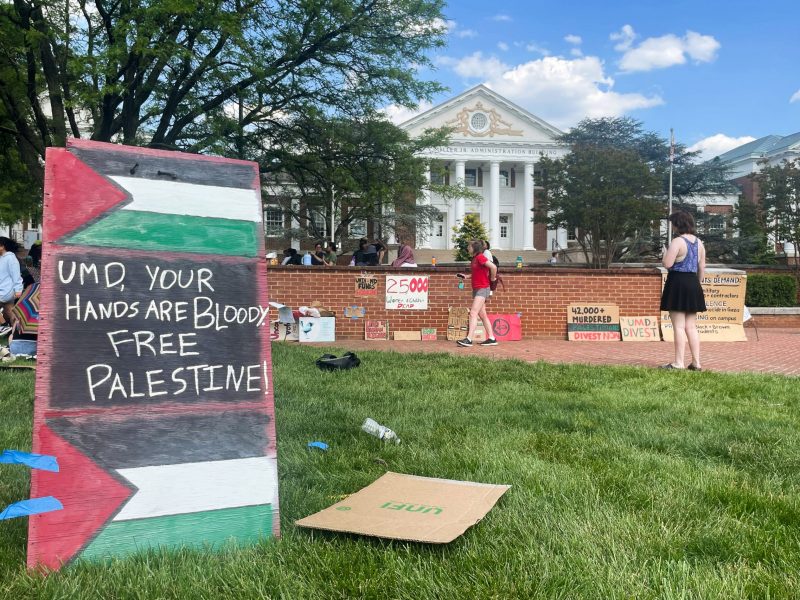By Ryan Wu
For The Diamondback
David Satterfield, the acting assistant secretary of state for Near Eastern affairs, offered justification for the recent U.S.-led missile strikes in response to an alleged chemical weapons attack in Syria, and provided insight into the broader challenges of Middle East foreign policy Thursday at the Sadat Forum.
Before more than 150 attendees in Stamp Student Union, Satterfield said the April 13 missile strike conducted by the U.S., Britain and France on three Syrian military sites were not inspired by notions of “a regime change,” but instead as an enforcement of the international law, which specifically prohibits the use of chemical weapons.
The multilateral strike was initiated several days after reports of a chemical attack began to emerge from a rebel-occupied town in the war-torn country.
“The [Syrian] regime is diminished in many ways,” Satterfield said, adding that the U.S. has a high threshold of engaging in such attacks, but will be “fully prepared to do so” if the Syrian government conducts similar attacks again.
This is the second time in just over a year the Syrian government, headed by Bashar al-Assad, has been accused of using chemical weapons against its own people since the war began in 2011. The U.S. launched a missile strike against a Syrian airfield in response to an alleged chemical weapons attack last April.
Shibley Telhami, the forum’s moderator and a government and politics professor at this university, said the Sadat Forum is a place for discussing the most important contemporary issues, adding that he invited Satterfield to speak at this year’s forum because of his nearly four decades of experience as a diplomat and his affinity for this university.
“He also had a lot of affection for the University of Maryland,” Telhami said.
In addition to the Syrian civil war, Satterfield said the misuse of Islam as an instrument of violence, by conventional or digital means, has extended far beyond the Middle East, and has to be addressed in innovative ways, calling the broader conflicts in the Middle East, “a historical, generational challenge” attributing many of its problems to failed models of government.
For junior finance and government and politics major Kyle Brinker, the most pressing topic in the Middle East is the changing dynamics in the region, including the growing influence of Iran in Lebanon.
Ambassador Satterfield said the Lebanese crisis would be resolved by building up of state institutions against illegitimate entities such as Hezbollah, a terrorist group financed by Iran.
Stefan Bakumenko, a sophomore government and politics major, said the most interesting Middle East topic is the battle against the Islamic State the because it has been a base for incredible violence and terror without a sovereign state acting behind it, he said.
“It’s very interesting how the 21st century has changed the idea of a state,” he added.
CORRECTION: Due to a reporting error, a previous version of this story stated that there were about 100 people in attendance. There were more than 150. This article has been updated.



